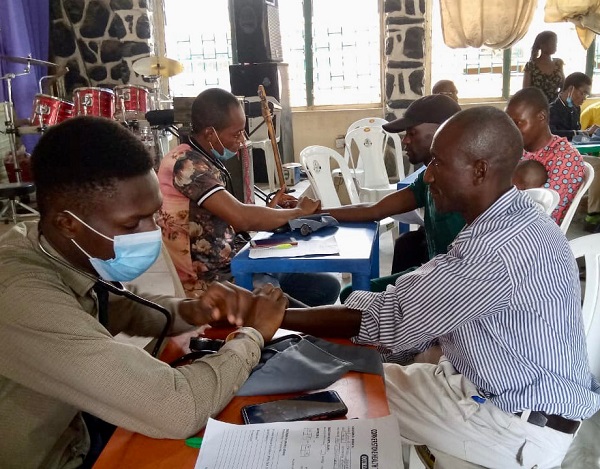
Stakeholders have emphasized that Nigeria’s Primary Healthcare Centres (PHCs), crucial to the country’s healthcare system, require immediate revitalisation. With over 30,000 PHCs scattered across the nation, a substantial number remain non-functional due to inadequate funding, insufficient staffing and deteriorating infrastructure. During separate interviews with journalists in Abuja, various stakeholders asserted that tackling these challenges is vital for achieving Universal Health Coverage (UHC) for Nigerians.
According to the National Primary Healthcare Development Agency (NPHCDA), only 20 per cent of PHCs in Nigeria are fully operational. This alarming statistic has left millions of Nigerians, especially those in rural areas, without access to basic healthcare services. Consequently, rural communities face increased health risks and are often unable to receive preventative and curative care.
A family physician, Dr. Elizabeth Dasat pointed out that the lack of adequate funding is a significant barrier to the effective operation of PHCs. Though the Basic Healthcare Provision Fund (BHCPF) was established to support PHC financing, Dasat noted that implementation challenges have severely limited its effectiveness. “There is an urgent need for the government to increase budgetary allocations to PHCs and ensure the effective disbursement of funds to local governments,” she stated, stressing that financial support is critical for revitalising the healthcare system.
In support of this sentiment, president of the Healthcare Federation of Nigeria (HFN), Dr. Pamela Ajayi underscored the potential of public-private partnerships (PPPs) in bridging funding gaps and enhancing healthcare facilities. She articulated that “a shortage of skilled healthcare workers is another critical challenge facing PHCs.” Many of these centres rely heavily on community health workers rather than qualified medical professionals, which impacts the quality of care delivered.
Executive director of the Vaccine Network for Disease Control, Mrs. Chika Offor called for implementing incentives aimed at attracting and retaining healthcare workers in underserved areas. “Providing competitive salaries, housing allowances, and opportunities for professional growth will encourage doctors and nurses to serve in rural communities,” Offor explained, highlighting the need for better working conditions to motivate healthcare professionals.
While it is essential to address workforce shortages, the lack of basic amenities in many PHCs also poses significant challenges. Many healthcare centres lack electricity, clean water, and essential medical equipment, making it exceedingly difficult to provide effective healthcare services to the populations they serve.
A health economist, Dr. Kemi Oludare urged the government to prioritise infrastructure development as part of its healthcare reform agenda. She suggested that innovative measures, such as solar-powered PHCs, should be implemented more broadly across the nation, informed by successful examples in states like Bauchi and Lagos. According to Oludare, these initiatives could help bridge existing gaps in healthcare delivery.
Community involvement is also pivotal in revitalising PHCs. Oludare noted that local communities can play a critical role by participating in decision-making processes, mobilising resources and monitoring healthcare delivery. “Ward development committees (WDCs) are effective tools for fostering community ownership. Community participation ensures that PHCs address the unique needs of the people they serve,” she stated.
For PHCs to provide comprehensive care, Dr. Gabriel Adakole, a public health expert, recommended integrating essential services such as maternal and child health, immunisation, family planning and disease prevention. He further suggested that digital tools, like the e-motive approach for maternal care, could significantly enhance service delivery and improve health outcomes.
During a recent health event, the Ministry of Health and Social Welfare, led by Prof. Muhammed Pate reaffirmed the government’s commitment to strengthening PHCs as a pathway to achieving UHC. “Strengthening PHCs is essential to ensuring that every Nigerian has access to basic healthcare services, regardless of their location or socio-economic status,” Pate stated.
To achieve lasting change, the chairman of the Health System Reform Coalition of Nigeria (HSRCN), Dr. Mustapha Lecky called for increased advocacy, accountability and robust policy reforms. Lecky emphasised the need for collaborative efforts among government agencies, private-sector players and civil society organisations to ensure sustainable improvements in the healthcare system.
As Nigeria continues its journey toward revitalising its PHCs, success stories from states like Nasarawa and Bauchi provide hope. However, sustained efforts and investments are crucial to replicating these successes nationwide. Revitalising PHCs is not merely about providing healthcare services; it is fundamentally about restoring dignity and hope to millions of Nigerians who deserve better health outcomes and access to quality care.

